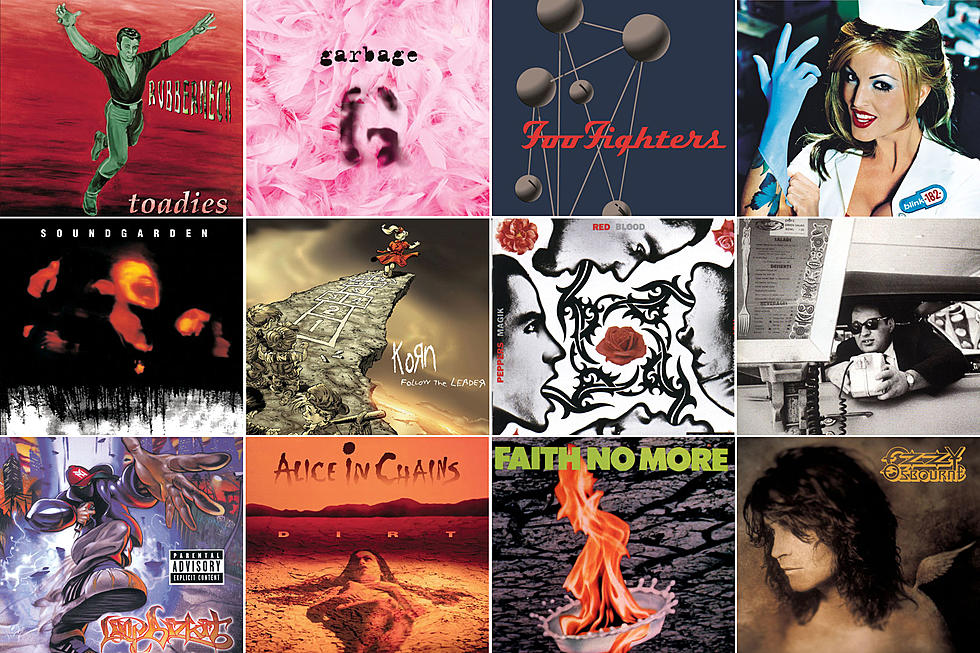20 Years Ago: Weezer’s ‘Pinkerton’ Redefines the Emo Genre
How did an album so reviled upon its release (by both critics and the band) become one of the most important and celebrated of the '90s? History can sometimes be less kind to music in the long run, but Weezer’s Pinkerton is perhaps more potent now than it was when it arrived on Sept. 22, 1996, in the midst of post-grunge glory.
Without Rivers Cuomo’s trumpet of the beta male, we’d have no Thought Catalog, no Death Cab for Cutie or Dashboard Confessional. (Depending on whom you ask, this progeny may be damning.) As catchy as some of the songs are (the guzzling, frantic “El Scorcho,” the shimmying “The Good Life”), Pinkerton is ground zero for a study of the Wounded White Knight.
Grunge gurus sang of alienation and abandonment mostly from other men — namely their fathers — but Cuomo made it all about the ladies on his band’s second album. Though he gussied up the intent with loose analogies to the Puccini opera Madama Butterfly, his scorned vengeance bloodied each lyric.
The seemingly tender closer, “Butterfly,” exemplified this problematic perspective. Through allegories to the Puccini work, the narrator half-heartedly apologized for raping a woman. “I’m so sorry for what I did / I did what my body told me / I didn’t mean to do you harm,” he cooed, using the excuse that he yearned to pin down what he thought was getting away from him. “Butterfly” went the route of Lennie from Of Mice and Men, playing the lug who didn’t know his own strength. However, Lennie was mentally disabled; Cuomo (or the song’s character) was sexually frustrated.
Feminists may find it is difficult to love a record that so heavily relied on the trope that nice guys finish last, and Pinkerton was beta male victimization put to power chords. Analyzing the sentimental “Across the Sea” quickly slips into disgust, as a very adult Cuomo described licking the fragile envelope of an 18-year-old Japanese pen pal. He juxtaposed this Lolita scene with his youthful ambition to become a monk, as though this girly prize were the reward for his chaste adolescence. “Across the Sea” was the anthem of the entitled “nice guy” who masquerades for years as a woman’s friend, only to show his hand the second she breaks up with or gets dumped by a “bad guy.”
Yet, Pinkerton’s way with words and delicious guitar licks courtesy of Cuomo and Brian Bell trumped its wimpy misogyny. At best, the tracks were humorous zeitgeists. “Pink Triangle” preceded Kevin Smith’s Chasing Amy by six months, but it brilliantly captured the faux pas of falling in love with a lesbian. And thanks to then-bassist Matt Sharp, Pinkerton was awash with random “woos!” and other outbursts befitting an Adam Sandler film. Rounding out the zaniness was good-time geek Pat Wilson on drums, whose fills mimicked the beating of 1,000 nerdy hearts.
The real resilience of Pinkerton is that it almost never got made. Weezer initially set out to create a space-themed experiment called Songs From the Black Hole, which was eventually chucked. Cuomo was attending Harvard and recovering from leg surgery during the songwriting process. And as he told Rolling Stone in 2010, his band was barely functioning during the recording.
This legend didn’t do the album any favors at first — it was eviscerated by the media for being too warbling and introverted. But when Weezer folded in on itself for a while after the album’s release and didn’t properly emerge again until 2000, it drove fans to frenzy. Cuomo’s Wounded White Knight roundtable needed their hero once again, needed to scream along with lines like “Oh, why can’t I be making love come true?” from the bratty “Tired of Sex.”
Despite its leeriness, we could never tire of Pinkerton, one of Weezer’s true masterpieces. No one said works of genius were easy listens.
Worst to First: Every Weezer Album Ranked
More From WRRV-WRRB










